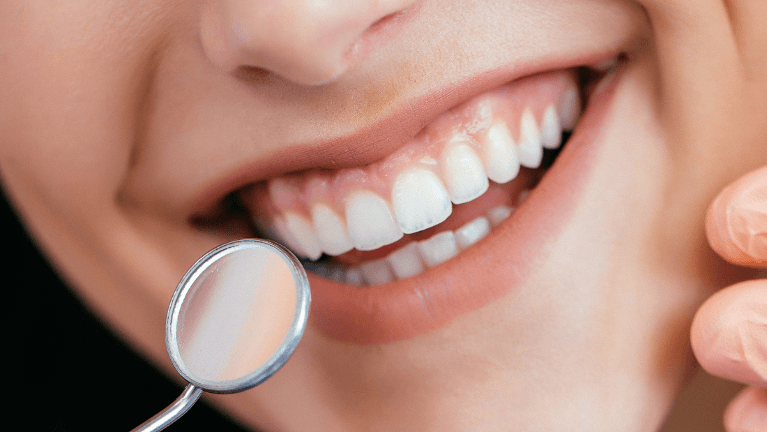
Dental crowns are a customary solution for restoring damaged teeth or protecting vulnerable teeth. They are custom-made to fit your teeth precisely—modern crowns are highly durable and can last many years.
However, their lifespan depends on your commitment to dental hygiene and maintenance. This blog discusses the dos and don’ts of dental crowns to help you keep them in pristine condition for as long as possible.
What are Dental Crowns?
A dental crown is a tooth-shaped cap made to cover the visible surface of damaged or decayed teeth and is commonly used in dentistry to restore the natural appearance and function of weak teeth. Crowns can be made from a variety of materials, including porcelain, resin, gold, or zirconia, and the choice of material can depend on a variety of factors, including:
- The tooth’s location
- The intended function of the tooth
- Your aesthetic preference
- Your budget
- Your dentist’s recommendation
Dental crowns have multiple common restorative uses, such as supporting weak teeth, preventing bacteria from entering damaged teeth, and repairing broken teeth. They can also protect teeth that have undergone root canal treatments and hold dental bridges in place. Aesthetic applications for dental crowns include covering severely discolored teeth and covering dental implants to provide a natural appearance.
Dental Crown Maintenance
Depending on the material, a dental crown can last ten or more years. However, the longevity can be significantly impacted by how well you care for your crown. Maintaining a strict daily dental care routine that mimics how you would care for natural teeth is vital.
Dental crowns are typically impervious to decay, but the natural tooth under the crown may still be vulnerable. Creating the habit now is vital if you haven’t practiced diligent dental hygiene.
Dental Crown Do’s
Excellent oral hygiene habits are the cornerstone of dental crown maintenance. The margin where the crown meets your natural tooth is especially vulnerable to developing cavities. Your daily routine should include:
- Brushing with a soft-bristled brush twice a day.
- Flossing daily, paying particular attention to the area around the crown.
- Using antibacterial mouthwash to reduce bacteria in your mouth and minimize plaque buildup.
Gentle flossing is crucial as improper technique can dislodge the crown. When flossing, gently slide the floss between your teeth and move it back and forth without pulling upward. To remove the floss, release one end and pull it out from the other side rather than tugging it back up, which can cause the floss to catch on the edge of the crown and pull it out of position.
If you grind your teeth, using a mouth guard at night can help extend the lifespan of your dental crown. Grinding puts excessive force on the crown, which can cause chipping, cracking, or loosening. Your dentist can provide a custom-fitted mouth guard to protect your natural teeth and crowns from the damaging effects of grinding.
If you experience any issues with your crown, such as pain, sensitivity, or changes in your bite, it is vital to see your dentist as soon as possible. Promptly addressing the issue can prevent more severe complications and reduce the risk of needing a premature crown replacement.
In addition, scheduling regular checkups is essential to dental crown maintenance. Dental checkups are an excellent indicator of oral and overall health, as many health issues are reflected in the mouth in the early stages. Regular checkups allow your dentist to:
- Check the condition of your crowns
- Ensure there is no decay developing under the crown
- Clean hard-to-reach areas
- Address issues before they become serious
- Take preventative x-rays
- Alert you to any significant changes in your mouth
Dental Crown Don’ts
To maintain the integrity of your dental crowns, you must never use your teeth as tools. Never chew on ice or bite your nails; these habits can severely damage your crowns and natural teeth. You should also avoid opening packages with your teeth and biting down on hard foods like nuts, as you may chip, crack, or dislodge your crowns.
Dental crowns are highly durable, but unfortunately, they are not indestructible. Sticky foods like caramel and toffees can pull crowns out of position, and hard foods like candies, raw carrots, and apples may cause chips or cracks.
If you feel any changes in your bite, do not ignore it. See your dentist immediately if your crown feels too high or your bite seems off. An improperly fitted crown can lead to significant discomfort, difficulty chewing, or damage to the surrounding teeth.
You should never neglect the rest of your mouth and focus your effort solely on your crowns. Without proper care and maintenance, you can still develop gum disease or decay in other teeth, ultimately affecting your crowns if the damage spreads unchecked.
Your Partner in Dental Health
Dental crowns are only the first step in maintaining lifelong oral health. Now is the time to invest in your dental hygiene and build habits to help your crowns and overall dental wellness. By following the dos and don’ts in this blog, you can extend the lifespan of your dental crowns and prevent damage and decay in the rest of your mouth.
Contact Dr. Nargiz Zadeh to schedule a consultation to discuss dental crown placement or book a routine maintenance checkup to ensure the lifelong health of your mouth.